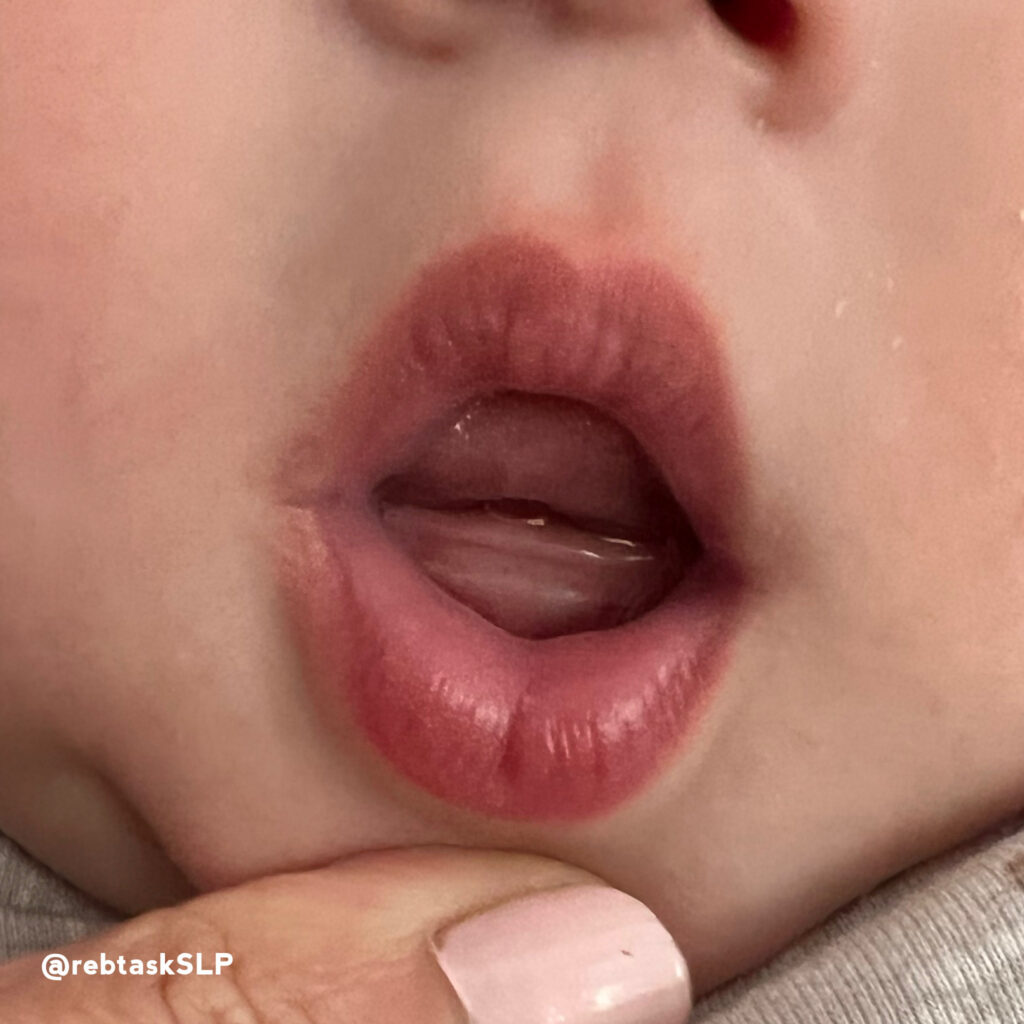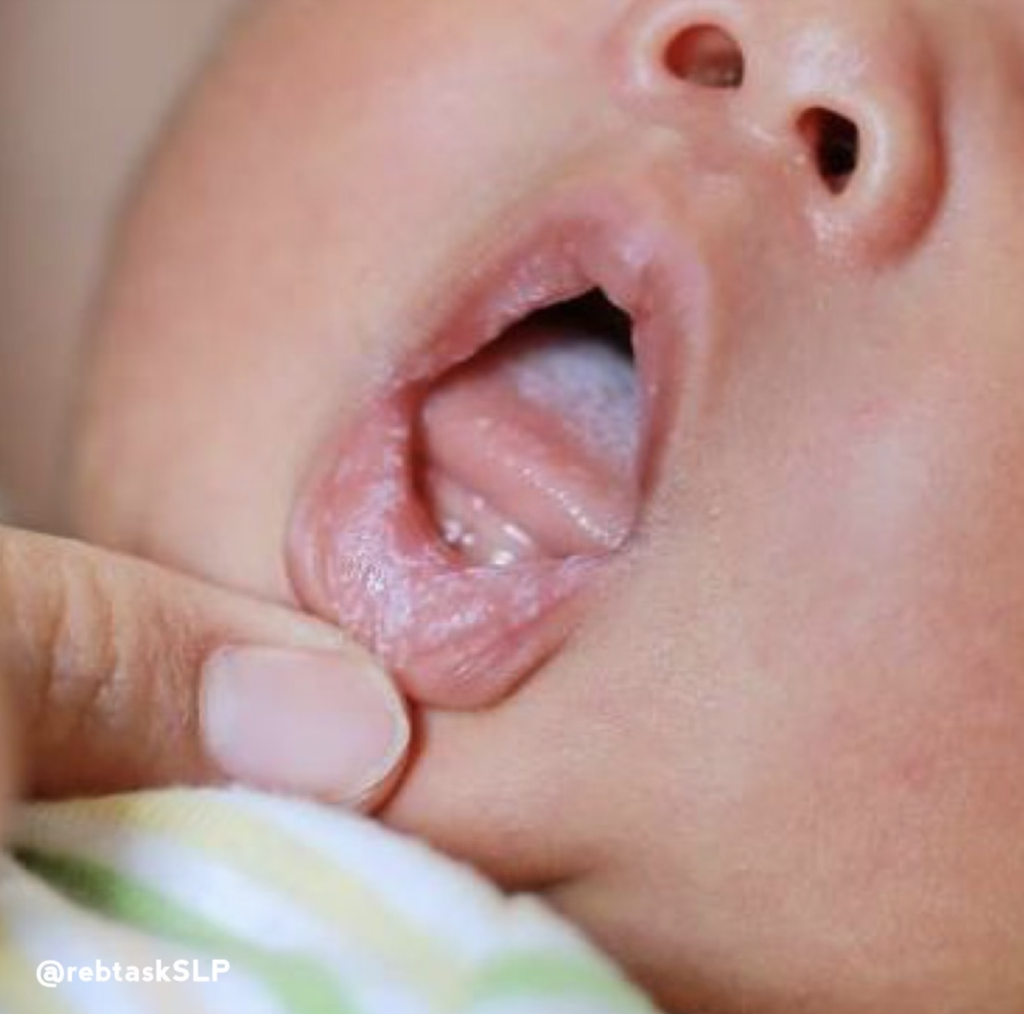Lingual (tongue) cupping is a reflex in the infants mouth which triggers the tongue shape into a bowl position. The tongue lifts up and cups forward on to the ridge of the gum line. This is one of four markers we assess in tight latch, suck and seal during infant feeding.
Typically we look for four different inter oral movement markers when assessing a latch or suction.
- Lingual cupping – described above
- Lingual lifting – the upward movement of the tongue to the top of the mouth
- Lingual Extension – the exertion of the tongue to the gum line
- The rhythmical wave – the movements during the coordination of oral markers 1-3.
When babies come in to our practice we assess the movements and coordination of these markers to determine causations and correlations for feeding and latching challenges. Then we work on therapeutic techniques to help create good latch and refer out when needed.
Invariably, we also ask questions about prior sucking and latching history for children coming in with feeding issues at ages 6 months and up. By looking at the history of feeding challenges we can narrow down anatomical issues from physiological issues which might be contributing to the challenges during mealtime.

Poor Lingual Cupping 
Proper Lingual Cupping

